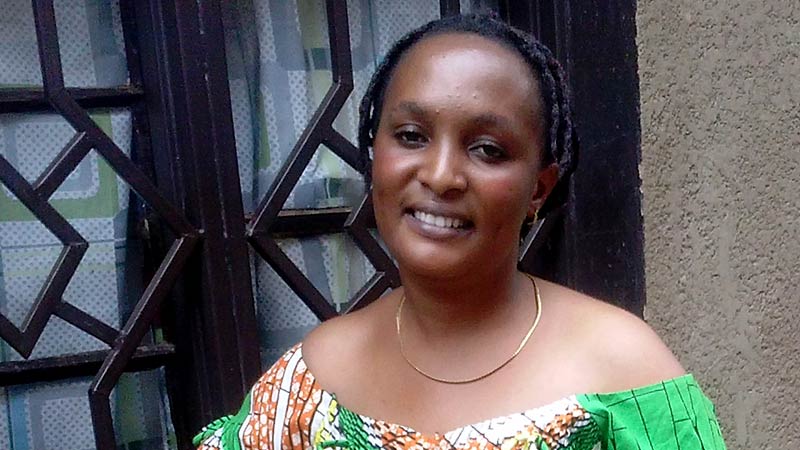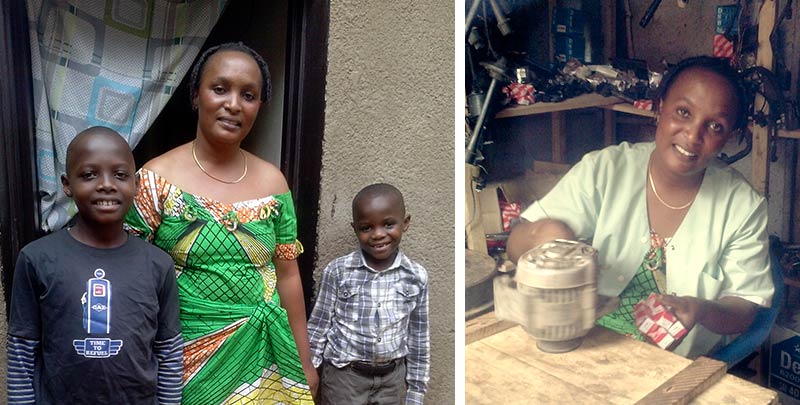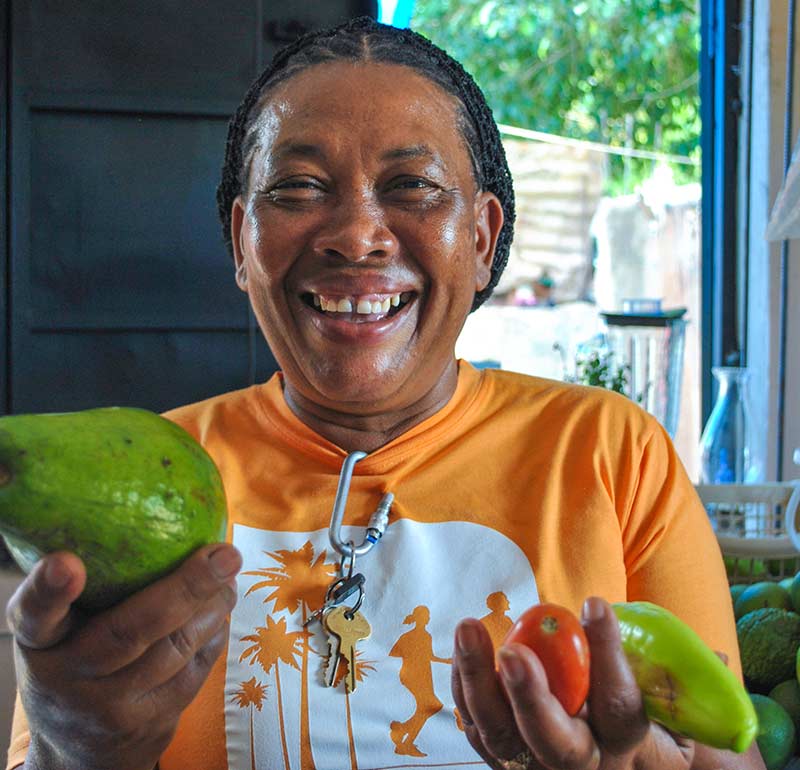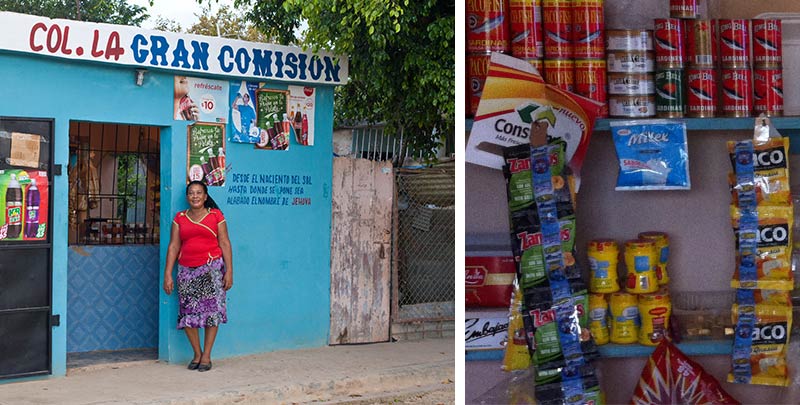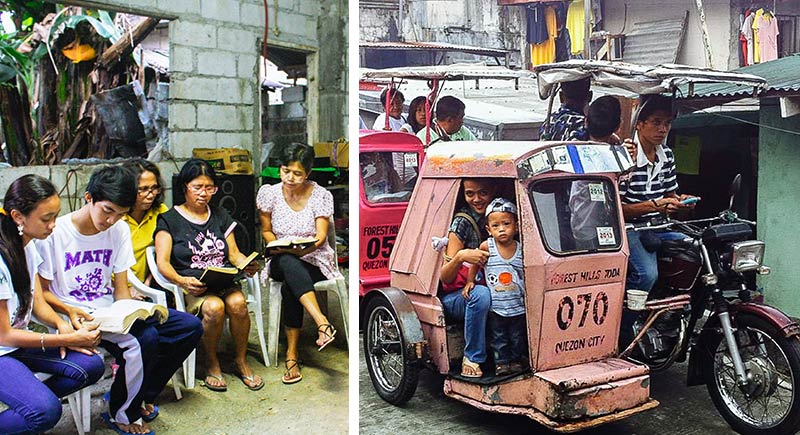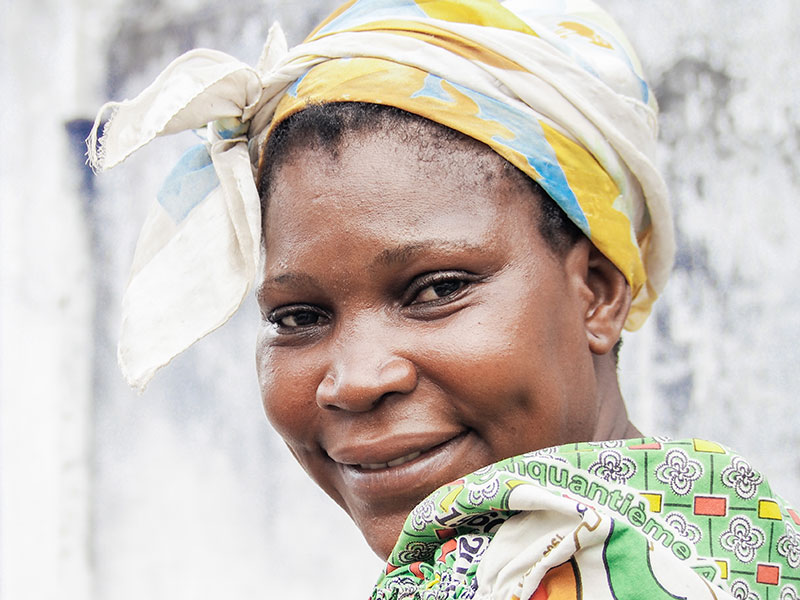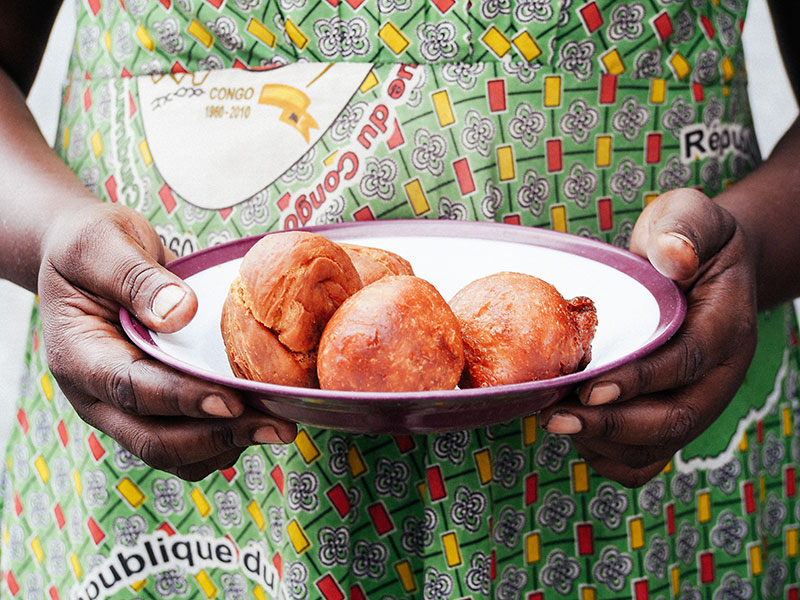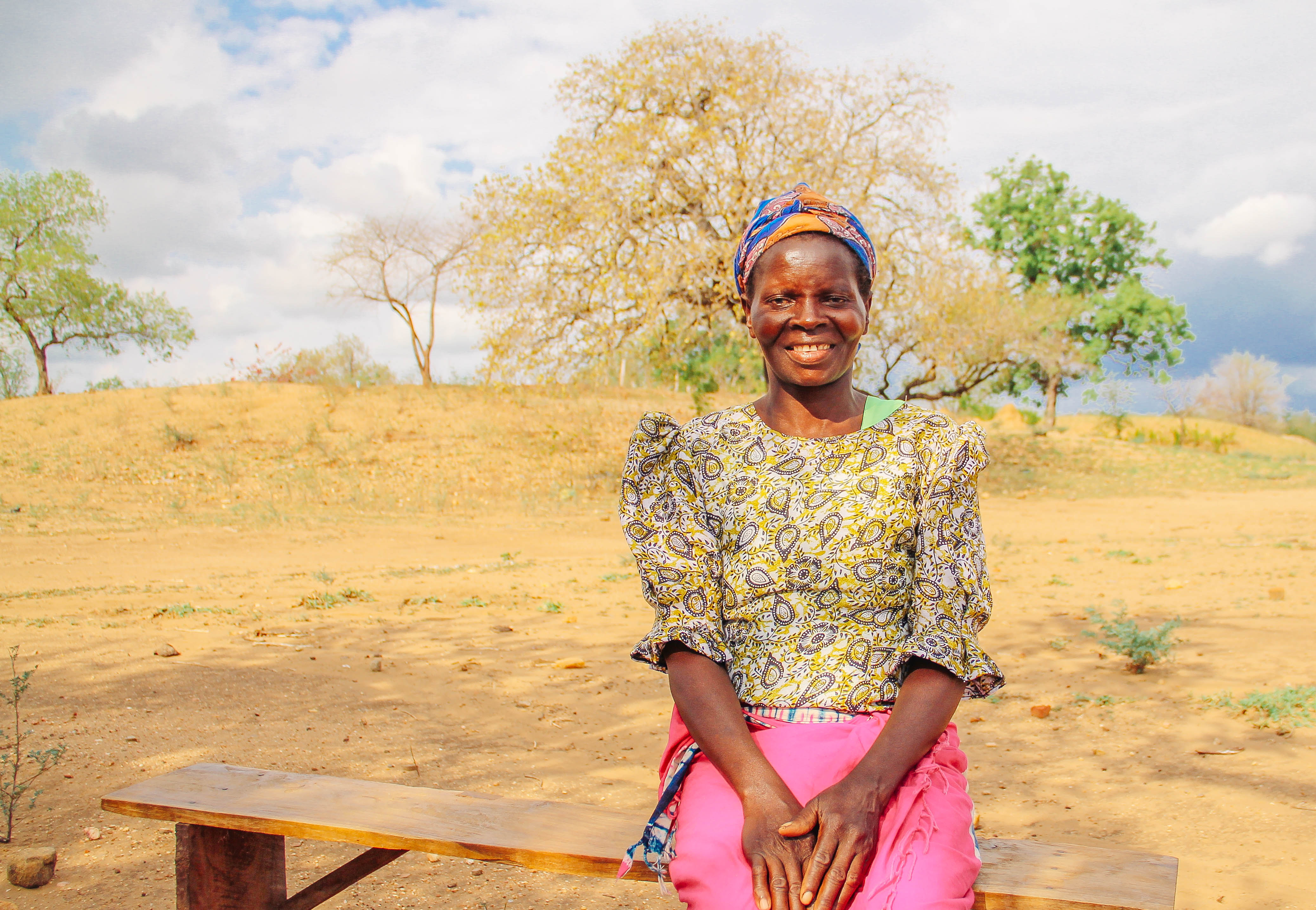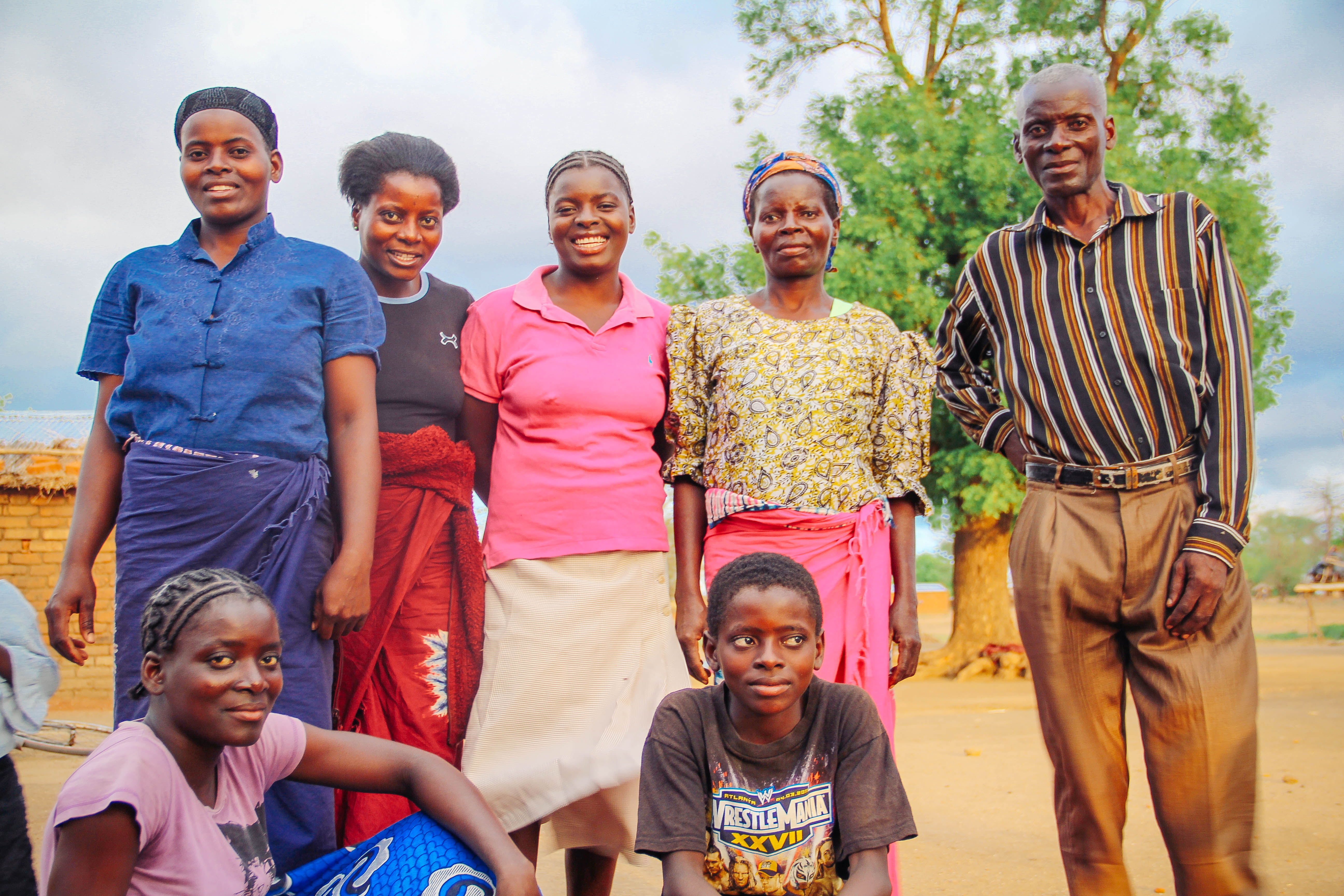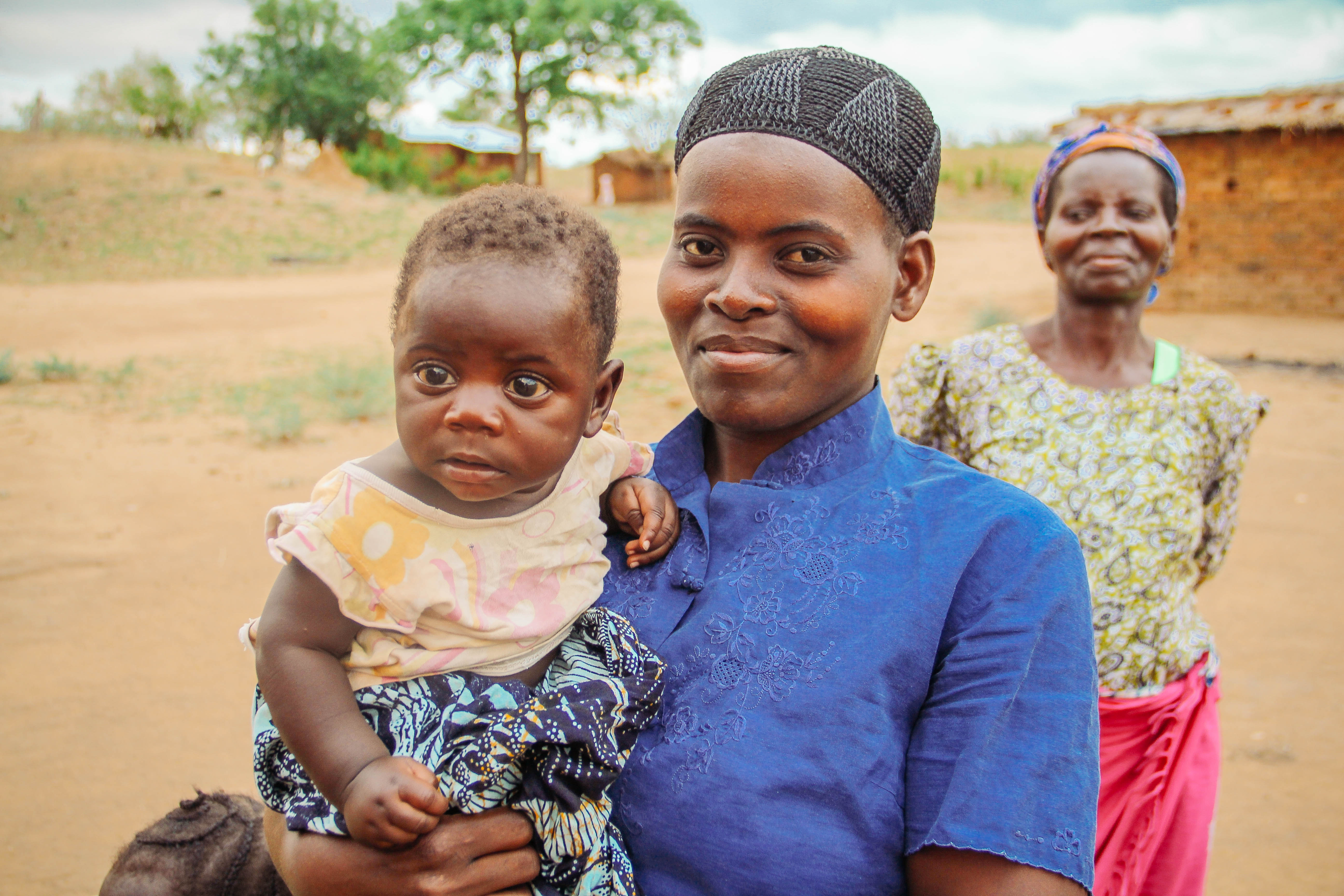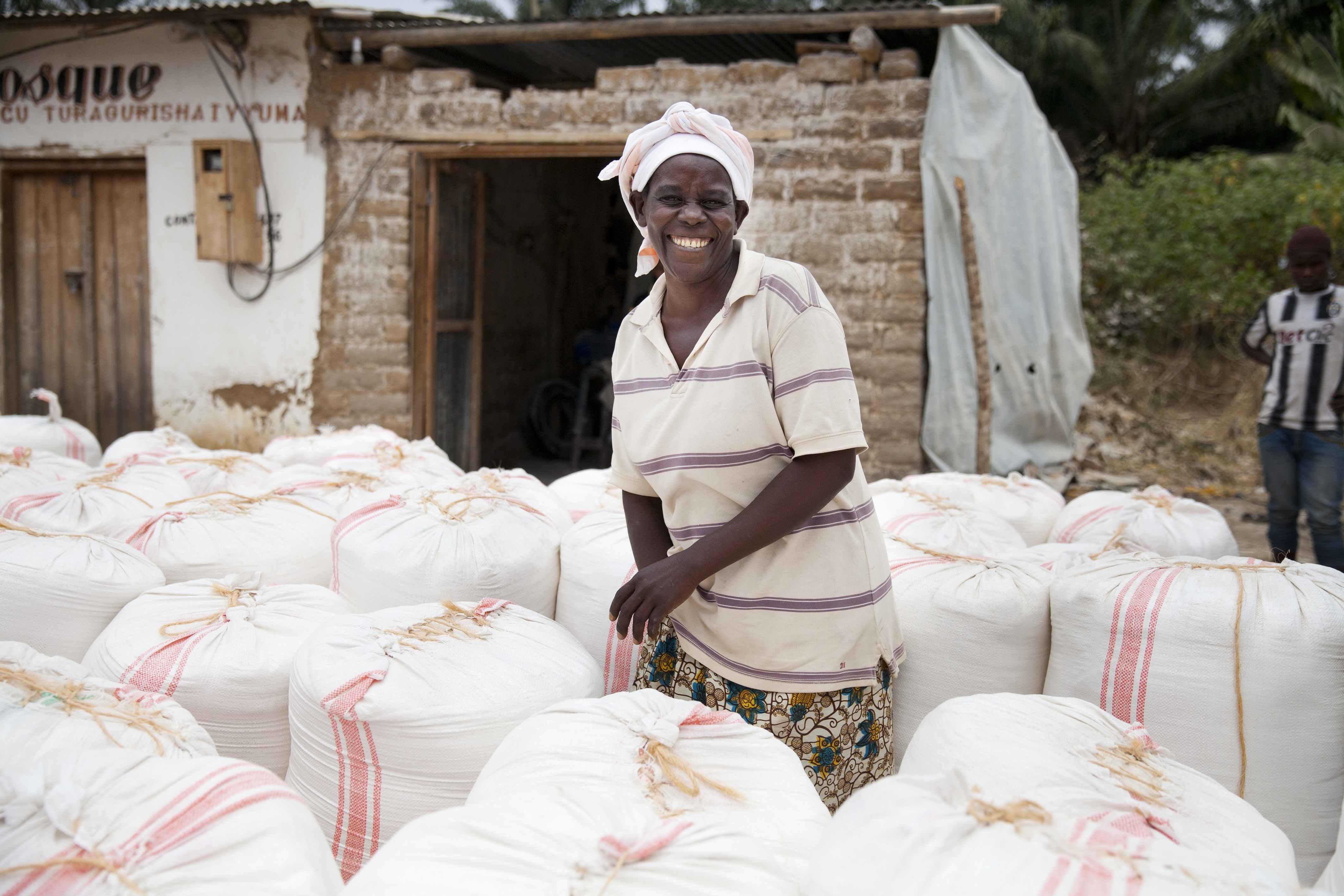Each year, HOPE celebrates a client who demonstrates HOPE’s values of perseverance, compassion, character, and creativity by announcing the Thurman Award winner. Established in honor of HOPE’s first CEO and his wife, the Thurman Award celebrates clients who have not only experienced change in their own lives but have also extended that transformation to others in their community. Over the next couple of weeks, we will be posting the stories of this year’s honorable mentions and overall winner.
Apophie Nyirabaziga is a mother to the motherless, a respected leader in her community, and a sharp businesswoman. Caring for five young children, three of whom she adopted when their own mother died, Apophie is proud to support her family with love and creativity in action.
A perceptive entrepreneur
In 2009, Urwego Opportunity Bank, HOPE’s partner in Rwanda, came alongside Apophie with a loan totaling just $88, which she used to strengthen her business selling cow and goat hides. A perceptive entrepreneur, Apophie realized there was greater demand for live goats, so she used subsequent loans to expand.
As her business grew, Apophie turned her attention to another industry: spare auto parts. Not only was it more profitable, it also allowed Apophie to more effectively leverage her husband’s own God-given talents as a mechanic. Through her 12 loan cycles, Apophie has modeled wise stewardship, saving half of each loan and investing the other portion back into her business.
Though her family used to live in a mud house without doors, windows, or toilets, Apophie now owns two homes, providing additional rental income. She has also used her profits to purchase two cows, a forest, six banana plantations, and a water tank for her family. Through her farm, Apophie employs eight others in the community. In addition, she serves in her local government and as a member of a cooperative committee formed to distribute water.






